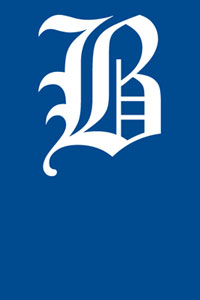It was another one of those press events where the main purpose was to either "thank" reporters or an opportunity to have good old fun _ we got quite a few of those last month. Having fun most of the time, while also meeting sources, was what we usually ended up doing during these dinners.
This night promised to be the latter, except that the source was new to the job and it was kind of a "getting to know you" event. However, it started getting weird when he placed 1,000 baht bills on the table in front of each reporter, saying that it was a gift for singing a song on stage.
In fact, it was a gesture we all knew deep down inside signalled "you'd better write good stories for me".
An acquaintance who covers the industry ministry, the beat I usually take care of, accepted 2,000 baht.
"At least I'm doing it in public," she said frankly to another senior reporter later on.
Then she went on to say how we practically accept money and favour in different forms anyway, such as when companies take us out to dinner after events, or the stunning amount of gifts we get in New Year's baskets, or even when PRs pick us up to go to their events _ the list goes on.
As my boss used to say, modern reporters are extremely spoiled.
I went to a recent press conference where the companies (since the event was all about a joint memorandum of understanding being signed) gave out a press kit. It included the press release, two small gift boxes, and an envelope.
I immediately opened it thinking there might be money in it, and if so, I was prepared to return it right away.
It turned out to be two skytrain cards, each containing 70 baht. As hesitant and naive as I was, I sent a message to the business editor asking whether or not I should accept the cards. How do you draw the line between what is and is not considered unethical and against journalistic standards?
What constitutes enough?
News services such as Reuters and Bloomberg, for instance, place high regard on this issue and have rules such as paying for hotel rooms for their journalists when covering stories upcountry or abroad, as well as transportation costs.
At a seminar on sugar at Centara Grand at CentralWorld with a colleague from Bloomberg, she invited me to have lunch on our own instead of enjoying the buffet typical of that kind of event. "That way, I feel more comfortable," she said.
Then there's receiving presents when we go to press parties. It seems like a large number of people might take part in corruption when it comes to this, as items range from towels to electronic goods and the grand prize usually consists of expensive smartphones such as iPhones and recently the Samsung Galaxy S2.
To avoid a situation in which we have to return the gifts to our hosts, our editors suggest that we tell them to remove our names from the drawing list in the first place.
Despite all the examples I have given, it could be argued Thailand is not developed like some European countries or the United States, and that these acts are necessary to get the stories going.
But what better time to start than now? If we continue with our corrupt practices, how can we not be prone to large corporations buying our stories, which we should be writing for the benefit of the public and not for the capitalists themselves?
It is high time the Thai media reform its code of conduct _ a reform to its ethical standards so this kind of behaviour will finally come to an end, or at least be minimised, for the sake of the media industry and its faithful readers.
Nanchanok Wongsamuth is a business reporter for the Bangkok Post.
